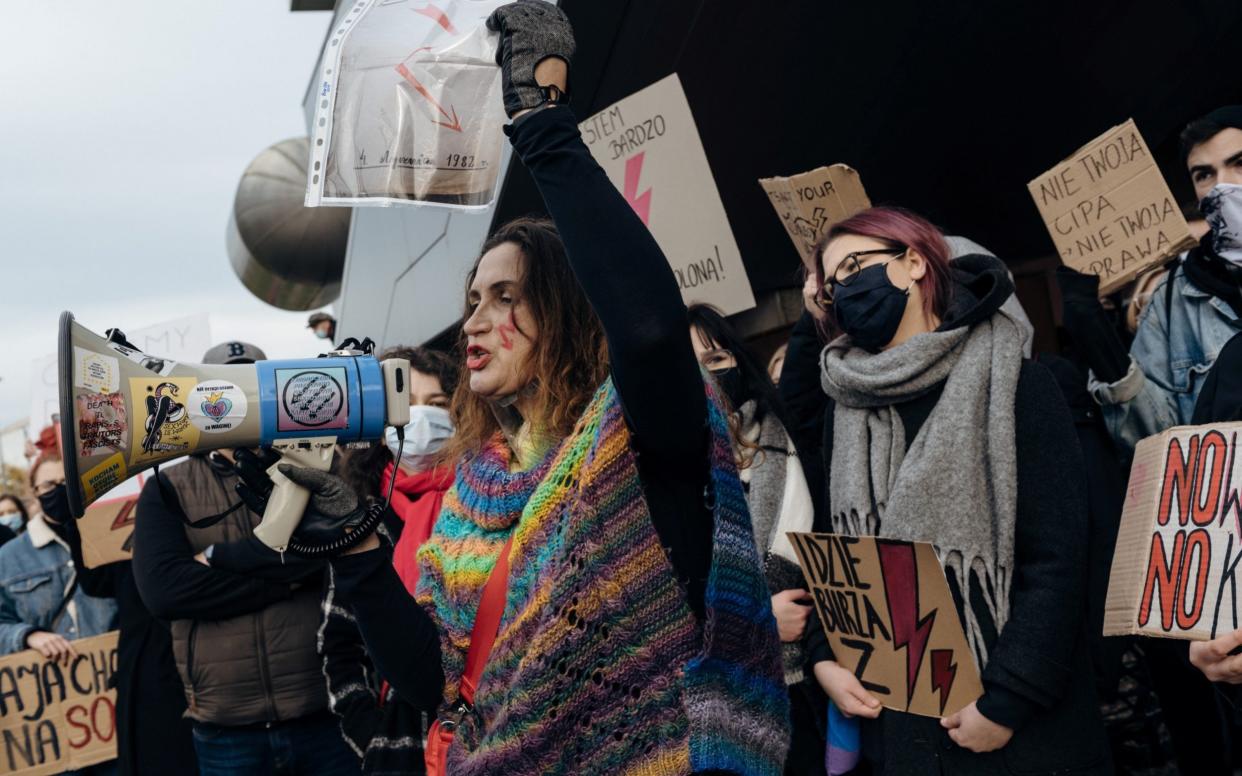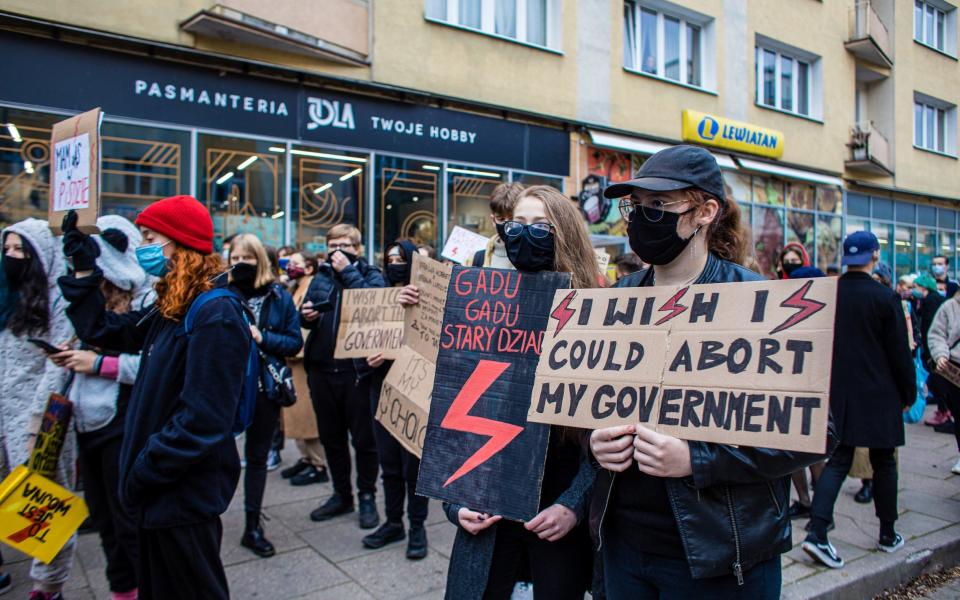Polish deputy PM accused of inciting 'civil war' after calling on people to defend churches from pro-abortion protests

Pro-choice campaigners have accused a Polish leader of stirring "civil war" after he urged the public to protect churches from being targeted during protests over a controversial abortion ruling.
They spoke out on Wednesday as they observed a general strike and took part in a sixth day of demonstrations, some of which have involved disrupting masses in the country's Catholic churches.
On Tuesday night, the leader of the Law and Justice Party, Jaroslaw Kaczynski, who is also a deputy prime minister, urged supporters to defend the churches from attack.
But with some churches already attracting far-Right vigilantes who have skirmished with protesters, critics accused him of stoking tensions even further.
Karolina Kwiaton, a protester and 34-year-old mother-of-two, told The Telegraph that it was a “disgusting call for civil war.”
She was one of a number of campaigners who gathered outside Mr Kaczynski's house in Warsaw to protest against last week's supreme court ruling, which could result in a near-total ban on abortion.
Although the ruling was a legal decision, opponents of the ruling claim the Law and Justice party is wielding its influence over the court to push through an anti-abortion agenda without having to use parliament.
“There are so many aspects of this I hate,” said Ms Kwiaton. “I hate it how they [the government] is dragging religion and its ‘pro-life’ position into my life. Through its previous actions the government now has the power to do anything, but it’s not their lives their actions affect."
In his speech on Tuesday, Mr Kaczynski called on supporters to "defend churches at any cost" from pro-choice abortion protestors, claiming that the alleged attacks on churches were "intended to destroy Poland".

His remarks echoed a headline on state TV that day, which declared that "Left-wing fascism is destroying Poland."
Just how many people took part in Wednesday’s general strike was unclear, as the Covid-19 outbreak has meant that many people are already working from home anyway.
However, the prospect of churches becoming a magnet for rival protesters has alarmed Poland’s Catholic Church, which has appealed for calm.
Wojciech Polak, the Primate of Poland, said that although the church opposed abortion, “we cannot forget the commandment to love thy neighbour.”
“It is the moral duty of a Christian to de-escalate conflicts, not fuel them," he added.
Despite around 90 per cent of Poles declaring themselves Catholic, and the country having a government dominated by social conservatives, opinion polls have long shown that most Poles favour maintaining the status quo of the current, already stringent 1993 abortion law.
Last week's court ruling found that a clause in the current law permitting terminations when there was severe damage to the foetus was unconstitutional.
When the ruling takes effect, which is expected in coming days or weeks, abortion will be permitted only when a pregnancy threatens the woman’s health or is the result of a crime like rape or incest.
In an opinion poll published on Wednesday in Gazeta Wyborcza, a leading Polish newspaper, 74 per cent of respondents opposed the court ruling, and only 12 per cent supported it.
Mariusz Kaminski, the interior minister, has vowed tough police action "in the face of further attempts of similar acts of aggression and desecration announced by the leaders and organisers of the protests."
He said that 76 people had been detained in connection to protests at churches, and that prosecutors were carrying out proceedings in 101 cases.


